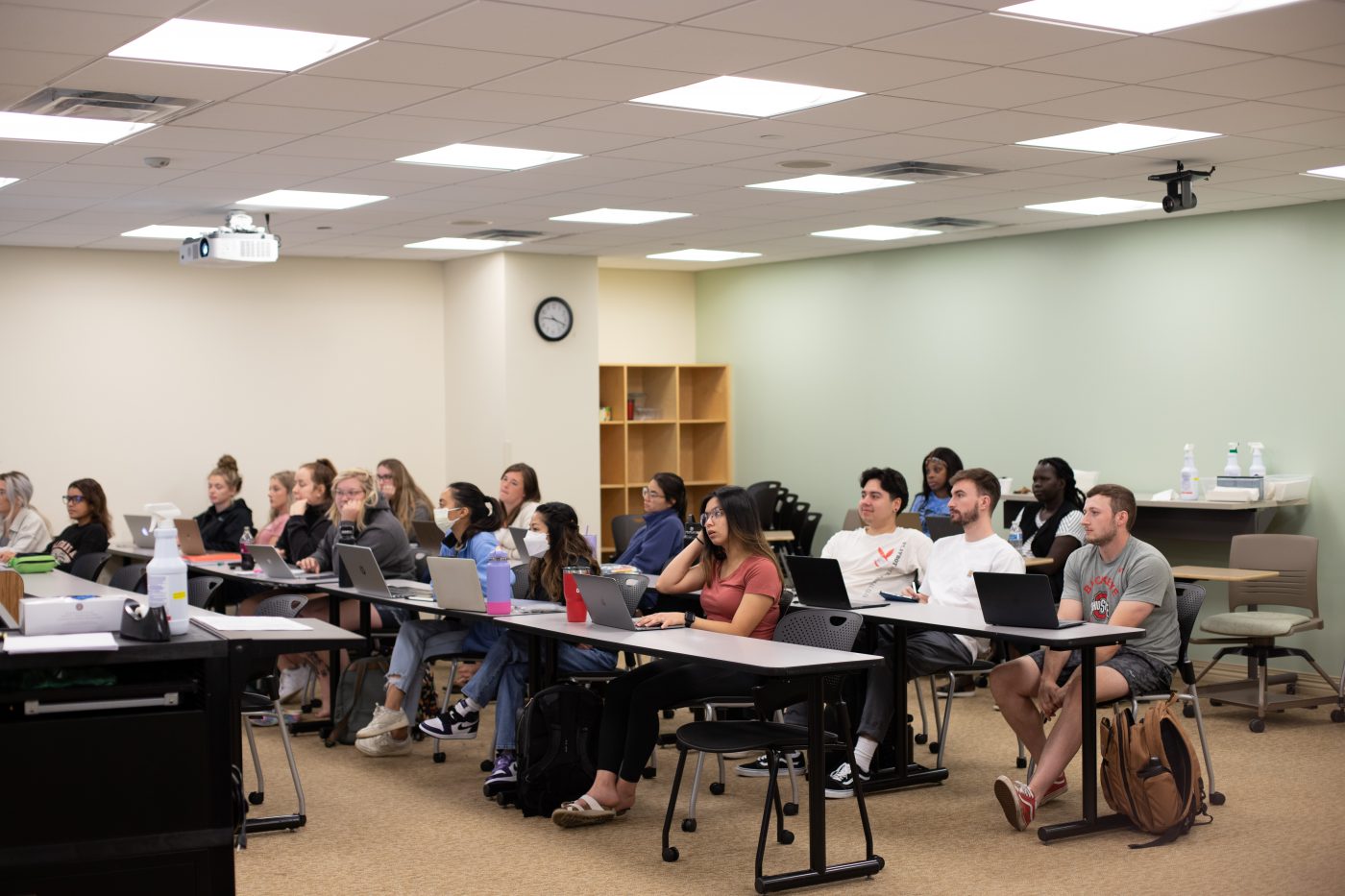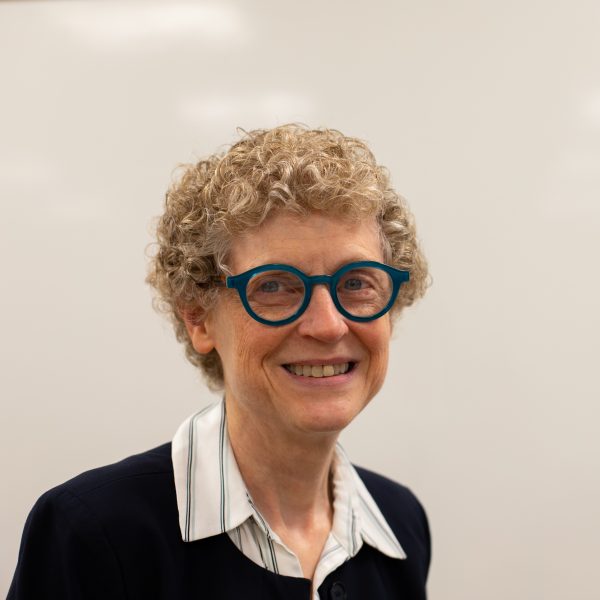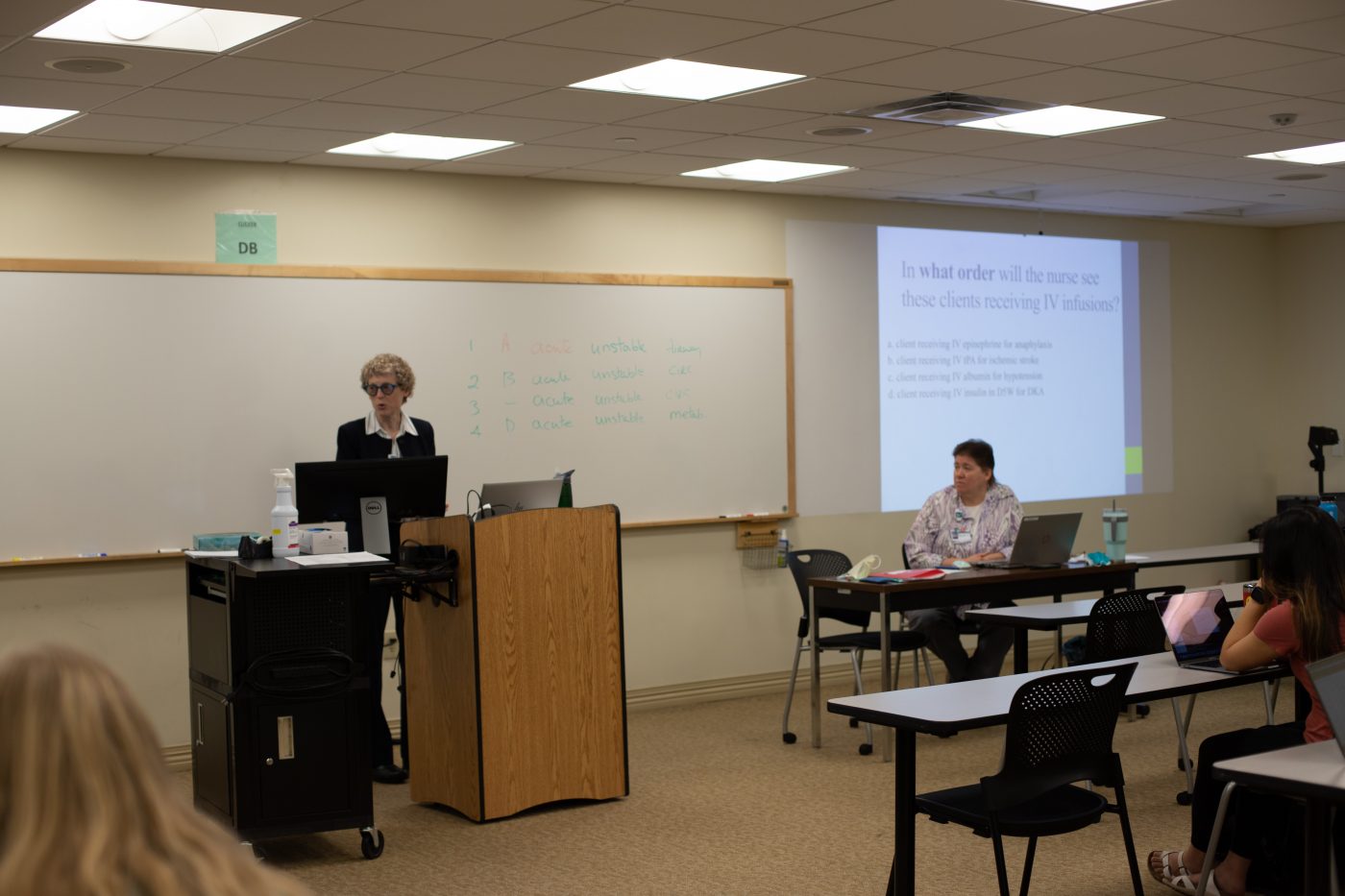Nurse Tutoring Proves to be a Vital Resource

Teaching nursing students to think like a nurse takes time and practice. Some students intuitively pick it up, and others need some extra time, focus and individualized guidance to flip that switch and start earning successful grades. Academic Support is an excellent resource for general needs such as chemistry or math tutoring, but nursing students need an experienced nurse to guide them in nursing programs.
Dr. Joan Ulloth has been a nursing instructor here for 39 years. She completed a doctoral degree in educational leadership with a dissertation on the use of humor in teaching nursing. Years ago, she realized that certain students would benefit from individualized instruction, so in 2004 she proposed the nursing division offer weekly tutoring hours for students.

She has a natural gift for understanding students who demonstrate a wide range of learning styles and meets them at their individual levels. Watching her teach or having a conversation with her, one can see she is passionate about how to reach individual students to help them meet their needs where they are.
Her initial idea to start a nursing tutor program was accepted by the Kettering College administration. They replaced her clinical hours, which an adjunct instructor could cover, with tutoring hours. This allowed her to offer tutoring to students who were referred to her by their instructors. The goal was to identify and correct students’ issues early in the term before they caused undue frustration and poor grades.
Dr. Ulloth initially meets with a student to determine what the issues might be. Sometimes it’s simply a matter of helping students learn how to best manage their time. It may be the student is finding it difficult to grasp and retain concepts. For other students it is learning how to apply what is learned to a variety of situations in case studies, test questions, or clinical experiences. Learning to read and listen constructively helps the student progress and gain confidence to think and act as a nurse. Being able to have one-on-one focused time with an instructor who can recognize and respond to these issues often has a positive effect on the student’s success.
“Within the first hour, I can get a sense of where their difficulties are and suggest how they should move forward.”
-Dr. Joan Ulloth, PhD, RN, CNE
Professor, Division of Nursing
Dr. Ulloth observes that students can be understandably fragile because there is so much riding on their success. They believe if they fail a course, they don’t have the ability to be a nurse and the money and time they have spent has been wasted. The pressure to succeed as a nurse adds even more stress. Joan empathizes with this mindset and coaches students how to cope with setbacks and how to develop resilience.

Her role as a tutor can range from offering advice on how to put forth more effort to modeling new ways of thinking to those who are already exercising good effort. She is an encouraging cheerleader, helping students acquire the necessary tools to become successful nurses.
She predicts the division’s need to offer individualized tutoring to nursing students will become more important as the effects COVID-19 has had on learning become more apparent. There is evidence that many students have struggled with learning or social issues created by the lack of face-to-face instruction. These difficulties are likely to continue affecting these students as they head into college years from now.
She points out she can’t prove this forecast, but she knows that tutoring works. She has observed tutoring works best when an instructor identifies a problem early in the semester and refers the student; however, the student must take the initiative to meet with her and devote time and effort to their own success.
Dr. Ulloth believes the ideal nursing student is not necessarily the one with straight A’s. The more successful student is the one who takes ownership of the obstacles, asks for help and acts on it. An ideal nursing student is determined to succeed and learns how to actively listen and exercise critical thinking. Isn’t this also exactly the type of nurse we hope to encounter?
About Kettering College
Kettering College is a fully accredited, coeducational college that specializes in health science education. A division of Kettering Health, the College is located on the Kettering Health Main campus in a suburb of Dayton, Ohio, and is chartered by the Seventh-day Adventist Church. Kettering College offers an Occupational Therapy Doctoral program, a Master of Physician Assistant, Bachelor and Associate of Science degrees, and certificate programs.
Print This Page